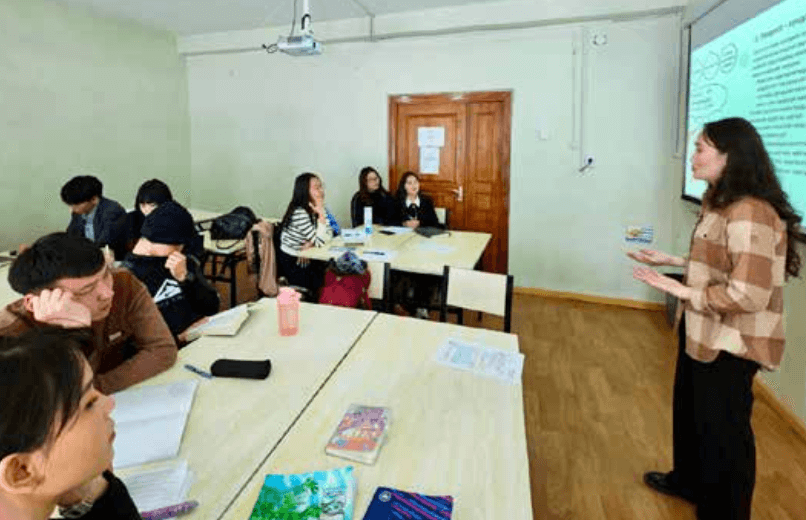From Trainee to Trainer: Sharing the PARTNERS Principles in Mongolia
By Bayarmaa Chuluunbat

I grew up in a herder family in the remote Altai Mountains of western Mongolia, a landscape rich in biodiversity, home to endangered species like the snow leopard, saiga, and Dalmatian pelican. When I was still a high schoolgirl, many international conservation projects were being implemented in our area. But I often felt a sense of discomfort—local communities were rarely involved in these efforts, even though we lived alongside wildlife year-round and protected nature through our traditional knowledge and values.
For example, my mother used to say, “Never cast your shadow on a bird’s nest. It might abandon its eggs.” And my father would remind us, “If we don’t move our camp, the saiga and gazelle will have nothing left to eat”. These teachings were my first lessons in conservation, rooted in culture, care, and deep ecological understanding.
Now, as a wildlife ecologist and conservationist, I feel a deep sense of purpose in working directly with herders and local communities—people like my own parents—to build inclusive conservation approaches that respect and involve them as equal partners.
In autumn last year, I had the incredible opportunity to attend the PARTNERS Principles training on the shores of Issyk-Kul Lake in Kyrgyzstan. Learning from conservationists from across the globe was truly inspiring. It sparked a strong desire in me to share what I learned with young people in Mongolia.
That’s why I’m so proud that we’ve now integrated “Local Communities and Conservation”, a lecture and seminar series based on the PARTNERS Principles, into the Conservation Biology curriculum at the National University of Mongolia.
What moved me most was the students’ feedback. They shared that while they had always felt the importance of treating communities with respect, they had never received formal training on how to genuinely engage local people in conservation work. Many said the course sparked new interest in community- based conservation and gave them a fresh perspective on their future roles.
I’m deeply grateful to everyone who helped make this happen—our team, my collaborators, and WCS Mongolia for their support. Sharing what I’ve learned with young conservationists in my home country has been one of the most fulfilling moments in my career. It feels like a meaningful way to give back to the people and landscapes that shaped who I am today.
About the author: Bayarmaa Chuluunbat is an Indigenous community member from the Altai Mountains, working as wildlife biologist at the Wildlife Conservation Society in Mongolia. Her work encompasses research, community engagement and environmental education with a focus on fostering sustainable human wildlife coexistence.
